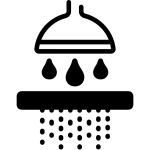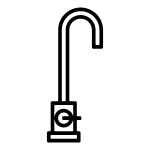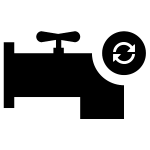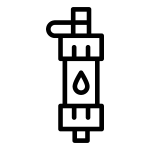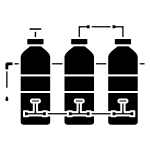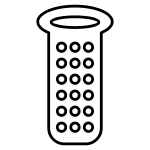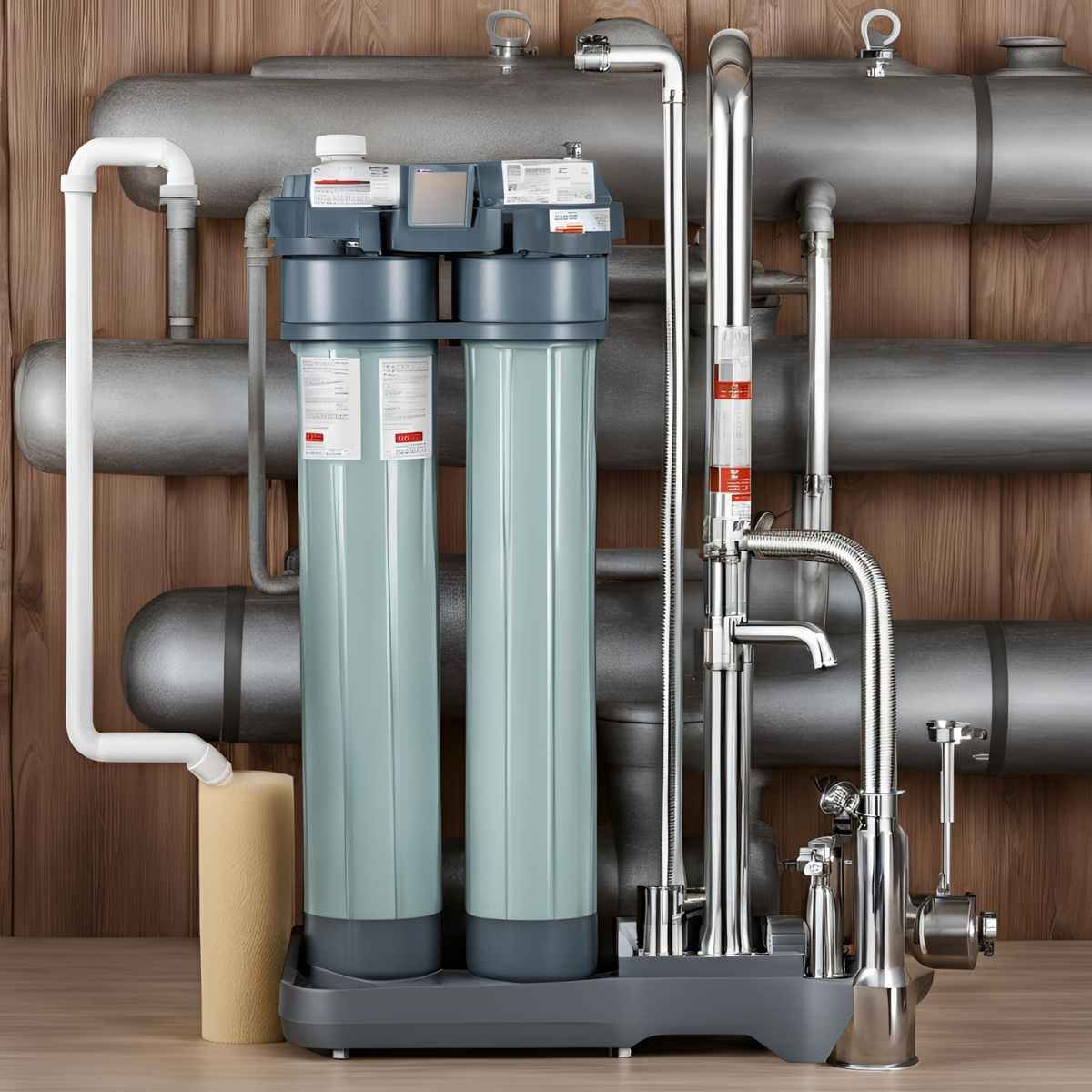If you’re looking to improve the quality of water in your home, you’ve probably come across terms like water softener and water filter. While these terms are often used interchangeably, they actually serve very different purposes. Understanding the difference between a water softener and a water filter is crucial for choosing the right solution for your household’s needs.
In this detailed blog post, we’ll explore everything you need to know about water softeners and water filters, including how they work, their benefits, key differences, and which one might be best for you. Let’s dive in!
Table of Contents
- What Is a Water Softener?
- What Is a Water Filter?
- Key Differences Between Water Softener and Water Filter
- Types of Water Softeners
- Types of Water Filters
- When Do You Need a Water Softener?
- When Do You Need a Water Filter?
- Can You Use Both Together?
- Which One Should You Choose?
- Conclusion
- FAQs
What Is a Water Softener?
A water softener is a system designed to remove hard minerals like calcium and magnesium from water. Hard water can cause a variety of problems in your home, from soap scum on your dishes to scale buildup in your pipes and appliances.
How Does a Water Softener Work?
Water softeners typically use a process called ion exchange. Here’s how it works:
- Hard water passes through a tank filled with resin beads.
- The resin beads are charged with sodium or potassium ions.
- As water flows over the beads, calcium and magnesium ions are swapped out for sodium or potassium ions.
- The softened water then flows into your home’s plumbing.
The system periodically regenerates by flushing out the accumulated minerals and recharging the resin beads with salt
Benefits of a Water Softener
- Reduces limescale buildup in pipes and appliances.
- Makes soaps and detergents more effective.
- Prolongs the life of water heaters, dishwashers, and washing machines.
- Leaves skin and hair feeling softer and cleaner after showering.
What Is a Water Filter?
A water filter is a system that removes contaminants, chemicals, sediments, and impurities from water to make it cleaner and safer for consumption.
How Does a Water Filter Work?
Water filters come in many types, but most use physical barriers, chemical processes, or biological methods to clean water. Common filter materials include:
- Activated carbon
- Reverse osmosis membranes
- Ceramic filters
- UV light systems
Water filters are designed to target a variety of contaminants such as chlorine, lead, bacteria, pesticides, and volatile organic compounds (VOCs).
Benefits of a Water Filter
- Improves the taste and odor of water.
- Removes harmful contaminants and chemicals.
- Makes water safer to drink and cook with.
- Reduces exposure to heavy metals and pollutants.
Key Differences Between Water Softener and Water Filter
| Feature | Water Softener | Water Filter |
|---|---|---|
| Purpose | Removes minerals that cause hardness (e.g., calcium, magnesium) | Removes contaminants and impurities (e.g., chlorine, bacteria, lead) |
| Main Benefit | Prevents scale buildup and improves appliance longevity | Makes water cleaner, safer, and better tasting |
| Technology Used | Ion exchange | Physical, chemical, or biological filtration |
| Drinking Water Safe? | Yes, but high sodium levels may be a concern for some | Yes, designed for drinking and cooking |
| Common Usage | Whole-house systems | Under-sink, countertop, or whole-house systems |
Types of Water Softeners
Understanding the types of water softeners can help you make an informed choice.
1. Salt-Based Ion Exchange Softeners
These are the most common type and use salt to remove minerals through ion exchange.
2. Salt-Free Water Softeners
These systems use a crystallization process to condition the water rather than remove hardness minerals. They are more eco-friendly but less effective in areas with very hard water.
3. Dual-Tank Water Softeners
Ideal for large families or high-usage homes, dual-tank systems ensure you have soft water even during the regeneration process.
Types of Water Filters
There are various types of water filtration systems, each with its unique strengths.
1. Activated Carbon Filters
Excellent for removing chlorine, bad taste, and odors. Common in pitcher and faucet filters.
2. Reverse Osmosis (RO) Systems
Highly effective for removing a wide range of contaminants, including lead, arsenic, nitrates, and fluoride.
3. UV Water Purifiers
Use ultraviolet light to kill bacteria and viruses—ideal for areas with biological contamination.
4. Whole House Water Filters
These systems treat all the water entering your home and can be tailored to target specific contaminants.
When Do You Need a Water Softener?
You should consider a water softener if:
- You notice white, chalky residue on faucets, tiles, or dishes.
- Your soap doesn’t lather well.
- Your skin feels dry and itchy after bathing.
- Your water heater or dishwasher is underperforming or clogged.
A water softener is essential if your water hardness level is over 7 grains per gallon (GPG).
When Do You Need a Water Filter?
A water filter is needed if:
- Your tap water has an unpleasant taste or smell.
- You’re concerned about contaminants like lead, chlorine, or bacteria.
- You live near agricultural areas with possible pesticide runoff.
- You rely on well water or live in an area with outdated plumbing infrastructure.
You can check your local water quality report or test your water to find out which contaminants are present.
Can You Use Both Together?
Yes, absolutely! In fact, using a water softener and a water filter together can provide the most comprehensive water treatment solution.
- Use a water softener to handle hard water problems.
- Use a water filter to improve water quality for drinking and cooking.
In many homes, a whole-house filtration system combined with a water softener offers the best of both worlds.
Which One Should You Choose?
Here’s a simple guide to help you decide:
| Your Problem | Choose This |
|---|---|
| Hard water (scale buildup, soap issues) | Water Softener |
| Contaminated water (chlorine, lead, bacteria) | Water Filter |
| Both hard water and poor quality | Both Water Softener + Filter |
Still unsure? At Cuoll, we offer a wide range of water treatment solutions including high-quality water softeners, advanced water purifiers, and filtration systems tailored for every household need.
Our experts are available to help you choose the perfect system based on your location, water source, and usage patterns.
Conclusion
To wrap it up, understanding the difference between a water softener and a water filter is key to improving your home’s water quality. While a water softener addresses the issue of hard water by removing calcium and magnesium, a water filter ensures that your water is clean, fresh, and free from harmful contaminants.
Whether you’re battling scale buildup or just want better-tasting water, knowing what each system does—and how they can work together—will help you make the best decision for your home.
FAQs
Q1. Can I drink water from a water softener?
Yes, but it may contain higher sodium levels. If you are on a low-sodium diet, consider using a reverse osmosis filter for drinking water.
Q2. Do I need a water filter if I already have a softener?
Yes, because a softener does not remove contaminants like chlorine, lead, or bacteria. A filter ensures your water is safe to drink.
Q3. How often should I replace the filter in a water filtration system?
It depends on the type of filter and your water usage, but generally every 3 to 6 months.
Q4. How do I know if I have hard water?
Common signs include spots on dishes, dry skin after showering, and soap that doesn’t lather. A water hardness test can confirm this.
Q5. Which is more expensive: a water softener or a water filter?
Water softeners usually have a higher upfront cost, but both systems require ongoing maintenance. The total cost depends on the type and brand.
Explore our premium collection of water filters, purifiers, and water softeners at Cuoll — your one-stop shop for home water improvement. Need help deciding? Contact our team today!


